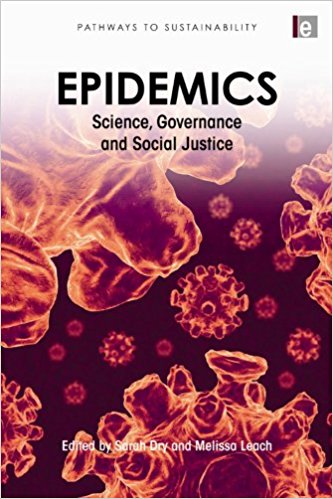
Written ten years before the COVID pandemic, this co-edited volume gathers case studies on a range of disease events such as SARS, H1N1 and avian influenza, and haemorrhagic fevers.
Epidemic outbreaks are complex.
Our responses to them are shaped by implicit assumptions about who or what is to blame that may not capture the dynamics and the uncertainties in the multi-scale interactions of people, animals and microbes. Prescient and more relevant than ever, Epidemics: Science, Governance and Social Justice brings powerful insights into the social, political and cultural forces that shape how people respond to epidemics in different settings.
‘An intellectually fresh take on contemporary global health policy – Kelley Lee, Head, Public and Environmental Health Research Unit, London School of Hygiene & Tropical Medicine